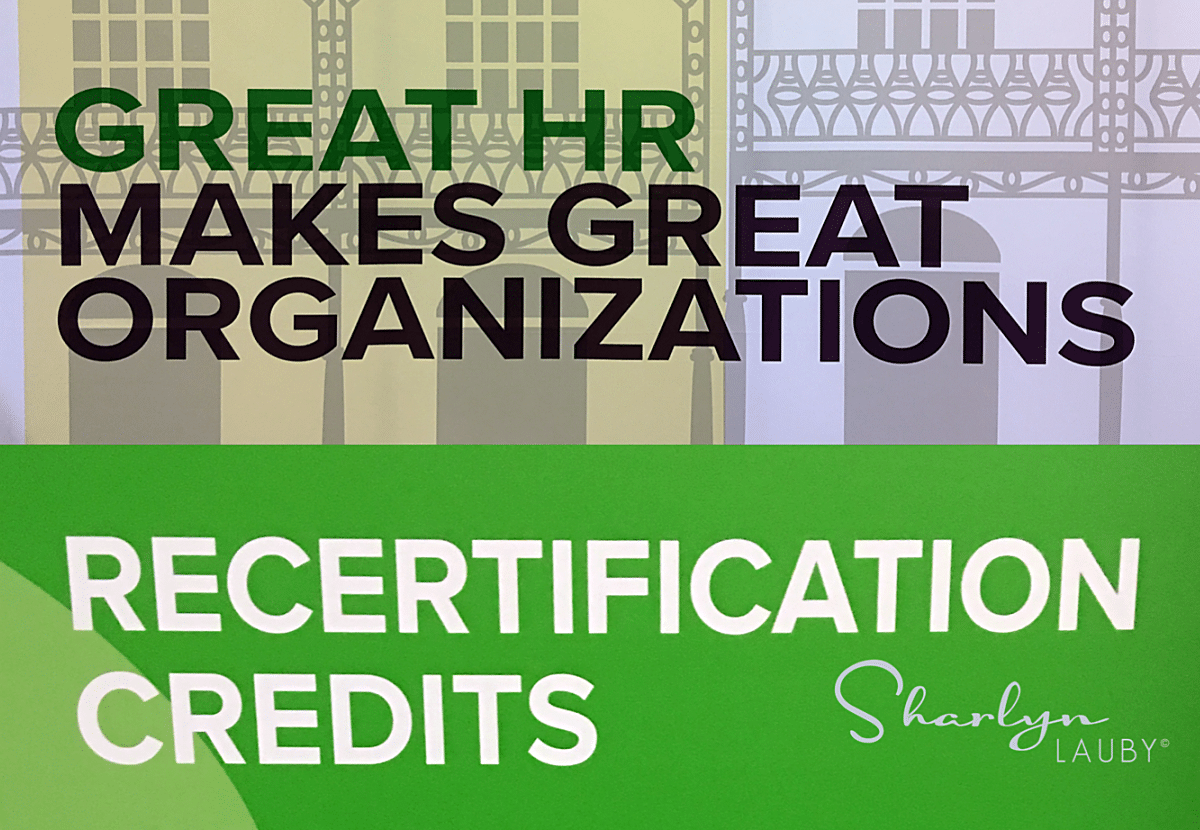Choosing the Best HR Certification – Ask #HR Bartender
One of the ways that HR professionals can demonstrate their knowledge, skills, abilities, and commitment to the profession is by obtaining a certification. But which one? That’s what today’s reader wants to know.
I’m trying to break into the HR field. There’s a lot of information on the SHRM and HRCI certification programs, but I wanted to know if there are any other certifications that would make a candidate more attractive to an employer. For example, I know the CEBS is for benefits but are there any certifications that would show an expertise in the field of training, employment laws, or general HR for healthcare professionals?
I completely understand the confusion. There are quite a few certifications related to human resources. Mind you, I’m not viewing this as a bad thing. Competition can translate into a high-quality standard. But it does mean, for individuals looking to obtain certification, you need to ask yourself a few questions such as:
- Why get certified?
- What does it take to achieve certified status?
- How does the credentialing organization support certified members?
- What’s the criteria for maintaining certification?
But going back to answer the reader’s question, here’s a list of the certifications I’m aware of. If you know of some others, drop us the info in the comments. Let’s put together a good list of the certifications that HR pros should consider depending on their area of focus.
Society for Human Resource Management (SHRM) offers two credentials: the SHRM-SCP and SHRM-CP. Both credentials are based on the SHRM Competency Model.
Human Resources Certification Institute (HRCI) offers seven different credentials, based on their human resources body of knowledge.
Certified Employee Benefits Specialist (CEBS) programis housed by the Wharton Executive Education Center at the University of Pennsylvania.
American Staffing Association has four certifications focused on staffing and sourcing.Two of them have an industry focus – one in health care and the other in technology.
TheAssociation for Talent Development (ATD)offers two credentials: Certified Professional in Learning and Performance (CPLP) and Associate Professional in Talent Development (APTD). Both are based on their competency model.
The American Payroll Association offers a Certified Payroll Professional (CPP) program.
WorldAtWork offers a Certified Compensation Professional (CCP) program.
The International Association for Human Resource Information Management (IHRIM) offers a Human Resources Information Professional (HRIP) certification.
In addition to certifications focused on the human resources profession, there are industry groups that offer certifications. For example, the American Society for Healthcare Human Resource Administration (ASHHRA) offers certifications. So does the American Hotel and Lodging Association (AHLA).
Obviously, no one can tell a person which certification to get. We can simply put the information out there and each individual needs to evaluate what is best for them and their career. That being said, there is one thing I do want to address. The reader in this case mentioned the best credential to get a job. And I totally get it. You want to get a credential that benefits your career.
Any organization that offers a credential should be able to share with you how employers feel about the credential. So, don’t be afraid to ask the question.
I’ve always said that your credential will mean more to you than anyone else. I still believe that. But that doesn’t mean you shouldn’t do your homework and get the credential that works best for your career and future.
Image captured by Sharlyn Lauby after speaking at SHRM Annual in New Orleans, LA
22